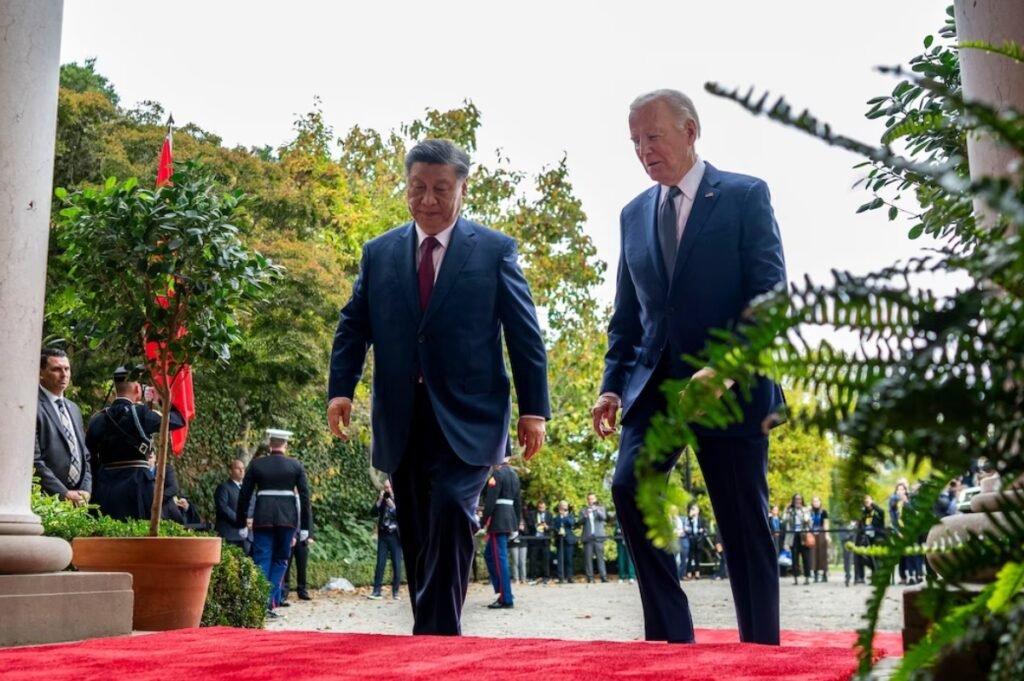The convergence of cyber dangers and geopolitical conflicts, specifically the alleged Cyber Attacks by China, has become a focal topic of international concern in an era driven by technology breakthroughs. Recent developments have highlighted alleged Chinese cyber actions, which could affect the Pacific region’s fragile balance. This in-depth examination dives into the complexities of cyber espionage, concentrating on China’s alleged participation in hacking incidents in Hawaii and the Pacific and its ties to the Taiwan issue.

The Hawaii Cyber Intrusions
Understanding the Scope
Reports have surfaced regarding cyber intrusions targeting sensitive systems in Hawaii. These instances have sparked debate worldwide concerning the intentions behind such acts. Our analysis aims to dissect the strategies and potential ramifications for Hawaii and global relations.
The Attack Methodology
When looking into the technical components of the cyber attacks, it is clear that sophisticated techniques were used. The attackers displayed a high level of proficiency in everything from phishing attempts to malware deployment. Understanding these approaches is critical for understanding the scope of the danger and strengthening cyber security measures globally.
Consequences and Investigation
The extent of cyber breaches goes much beyond simple electronic trespassing. The targeted systems included governmental, economic, and communication networks, all important to Hawaii’s infrastructure. Such breaches might have far-reaching effects, ranging from jeopardized national security to financial instability.
It is critical to recognize the complexities involved when deconstructing the process. The attackers used a multi-pronged approach, including advanced phishing techniques, to acquire unauthorized access. Once entered, sophisticated malware was used to assist in covert data ex filtration. This method of operation highlights not just the attackers’ daring but also the global necessity for enhanced cyber security safeguards.
Strengthening Cyber security Measures
As we navigate the digital realm, strengthening cyber security safeguards is no longer an option but a requirement. The cyber breaches in Hawaii are a harsh reminder of our interconnected world’s vulnerabilities. Governments, organizations, and individuals must all invest in cutting-edge cyber security systems.
Improving cyber security necessitates a two-pronged strategy. To begin, technical insights gained by analyzing attack methods aid in creating enhanced security solutions. Machine learning techniques, anomaly detection, and behavioral analysis are critical for preventing cyber threats. Second, encouraging international collaboration is vital. A unified front, sharing threat knowledge and responding to cyber attacks collectively, is essential.
Economic Motivations for China’s Strategic Interests in the Pacific
China’s commercial interests in the Pacific are diverse and extensive. The location is a vital crossroads for commercial routes, allowing access to significant resources. Understanding the link between cyber actions and economic goals provides valuable insights into the more significant geopolitical situation.
Implications for Geopolitics
The Pacific region has always been a geopolitical flash point, with states seeking power. China’s involvement in cyber activities adds a new degree of complication, with the ability to reshape alliances and power balances. Analyzing geopolitical consequences is critical for forecasting future events.
China’s economic motivations go beyond traditional trade lines. The richness of natural resources in the Pacific, from rare minerals to fisheries, makes access a strategic need for China. As a result, cyber incursions can be viewed as a strategy for gaining economic leverage and ensuring control in a region critical to global business.
Analyzing the geopolitical ramifications necessitates a thorough understanding of China’s strategic moves. We can better foresee how these cyber actions will affect regional dynamics if we understand the delicate dance of power, influence, and historical background. This geopolitical chessboard necessitates worldwide awareness, prompting governments to rethink their foreign policy to adapt to this changing scenario.
Connections to the Taiwan Conflict
Untangling the Threads
The Taiwan issue continues to be a source of contention in international relations. Our inquiry delves into the nuances of cyber activity in the Pacific and the Taiwan issue. Understanding these connections allows us to grasp the multidimensional character of China’s strategic maneuvers.
Complex Relationships
Taiwan is not a stand-alone issue but is inextricably linked to more extensive geopolitical strategies. China’s cyber efforts in the Pacific might be a strategy of consolidating influence and putting potential enemies to the test. Untangling these threads necessitates thoroughly examining historical conflicts, geopolitical goals, and the fragile balance of power in the Asia-Pacific region.
The Taiwan issue serves as a symbol and a strategic cornerstone for China as it strives to push itself on the world scene. Cyber operations in Hawaii and the Pacific might be part of a more extensive campaign to control the geopolitical narrative. To manage the complexities of the Taiwan issue, the international community must be careful in grasping these links.
Concerns About Global Security
The Bigger Picture
Beyond regional conflicts, the Pacific’s cyber actions pose concerns about global security. A breach in one region can have far-reaching consequences, impacting not only individual nations but also the whole stability of the international system. Analyzing the more significant security consequences is critical for encouraging international cooperation in cyber security efforts.
Effects of Cascades
Because the modern world is so interconnected, a breach in one corner of the world has worldwide ramifications. The Hawaii cyber breaches, with their potential geopolitical repercussions, highlight the importance of a comprehensive approach to global security. A single cyber event can have far-reaching consequences, affecting international relations and economic stability and even escalating into full-fledged hostilities.
Conclusion
Finally, the interplay between cyber espionage, geopolitical instability, and global security creates a complicated situation. This report thoroughly examines China’s claimed cyber actions in the Pacific, aiming to add valuable insights to the ongoing debate. As states struggle with digital age problems, a proactive and cooperative strategy is critical to preserving the international system’s integrity.

